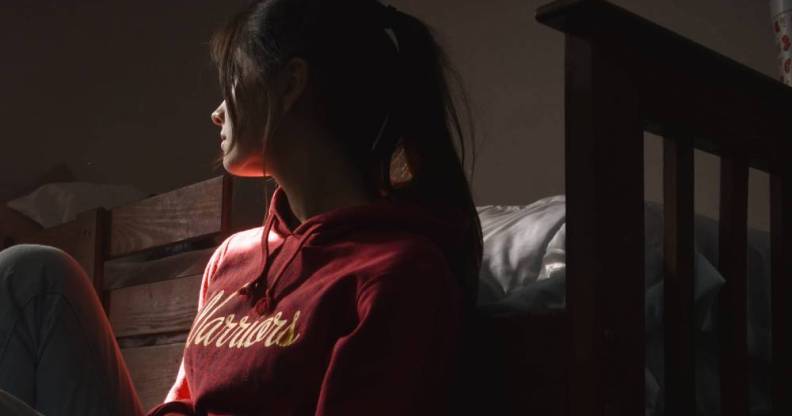LGBT+ youth more than twice as likely to be sexually harassed than their straight peers

A heartbreaking survey by LGBT+ youth charity Just Like Us revealed queer youth are more than twice as likely to experience sexual harassment. (Pexel)
LGBT+ youth are more than twice as likely to experience sexual harassment compared to their straight peers, according to a heartbreaking survey highlighting the experiences of queer youth.
The study, commissioned by youth charity Just Like Us, questioned 2,934 pupils aged 11 to 18 across the UK about the experiences of young people growing up in the UK in 2021. Of these pupils, 1,140 identified as LGBT+.
According to the distressing survey, LGBT+ young people are more likely to experience sexual harassment. Shockingly, seven per cent of LGBT+ young people reported experiencing unwanted sexual touching over the last 12 months, compared to two per cent of straight youth.
Of the LGBT+ youth who reported such vile harassment, bisexual young people reported higher rates of experiencing unwanted sexual touching. One in 10 (10 per cent) bisexual young people reported unwanted sexual harassment. This compared to six per cent of pansexual and lesbian young people and five per cent of gay young people.
The grim report also revealed that LGBT+ youth are twice as likely to have been bullied in the past year. Two in five (43 per cent) of queer young people said they were bullied in contrast to 21 per cent of their non-LGBT+ peers.
LGBT+ young people are significantly more likely to have seen homophobic bullying than non-LGBT+ pupils (46 per cent versus 26 per cent). Queer youth are also three times as likely to have seen transphobic bullying (33 per cent compared to 10 per cent) or biphobic bullying (26 per cent versus nine per cent).
One in five (18 per cent) LGBT+ pupils didn’t tell anyone they had been bullied and only 21 per cent told a teacher at their school. Shockingly, only a third (33 per cent) of queer pupils said there is a clear process for reporting anti-LGBT+ bullying in school.
Dominic Arnall, chief executive of Just Like Us, said their survey “has revealed some horrifying news” that LGBT+ pupils are “disproportionately struggling”. But Arnall said that sending “positive messages” about queer acceptance “goes hand-in-hand with positive outcomes for all pupils”.
Sadly, half of the pupils (48 per cent) have had little to zero positive messaging about being LGBT+ at school in the last 12 months. A third (30 per cent) said their school has only put out positive messages about being LGBT+ once or twice while a fifth (18 per cent) received no positive messaging at all.
The Just Like Us report was sponsored by JP Morgan and was conducted by Cibyl, an independent student market research consultancy group.

